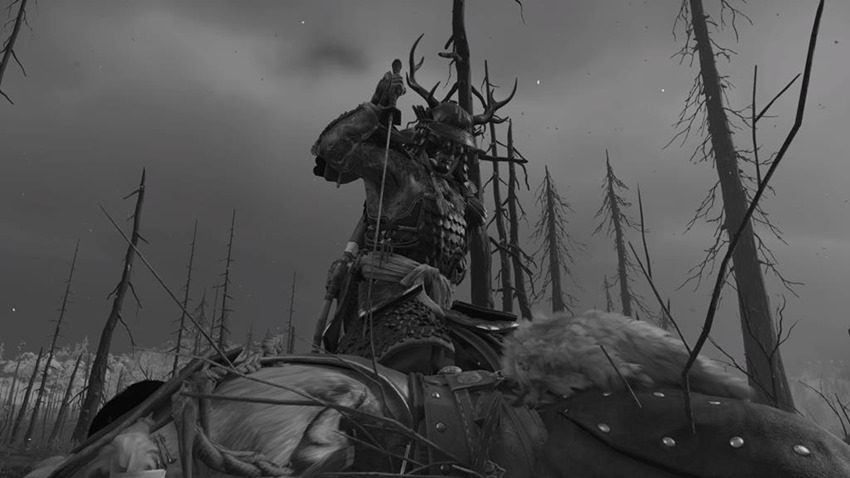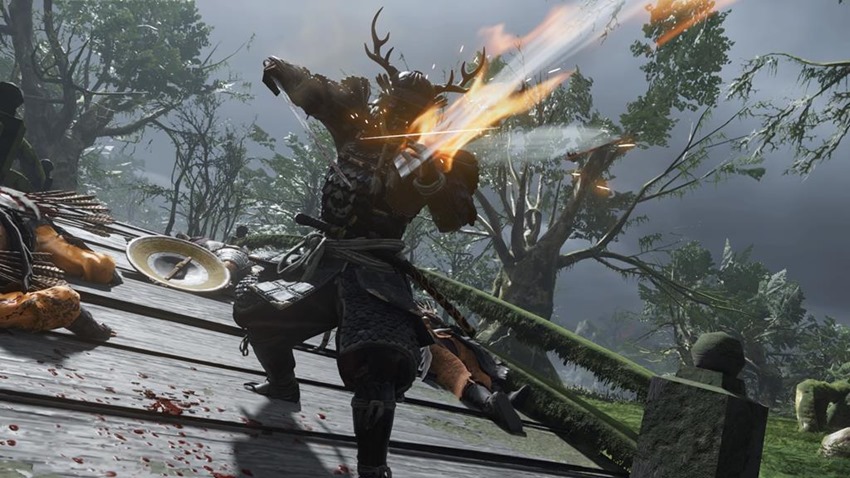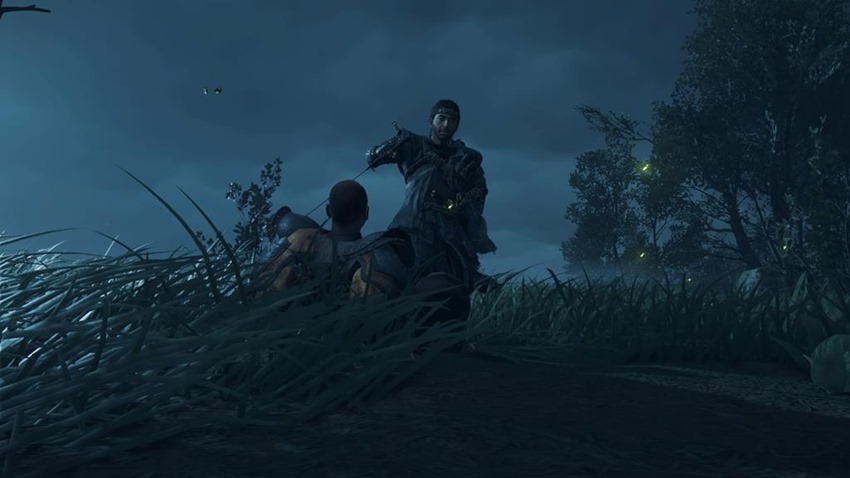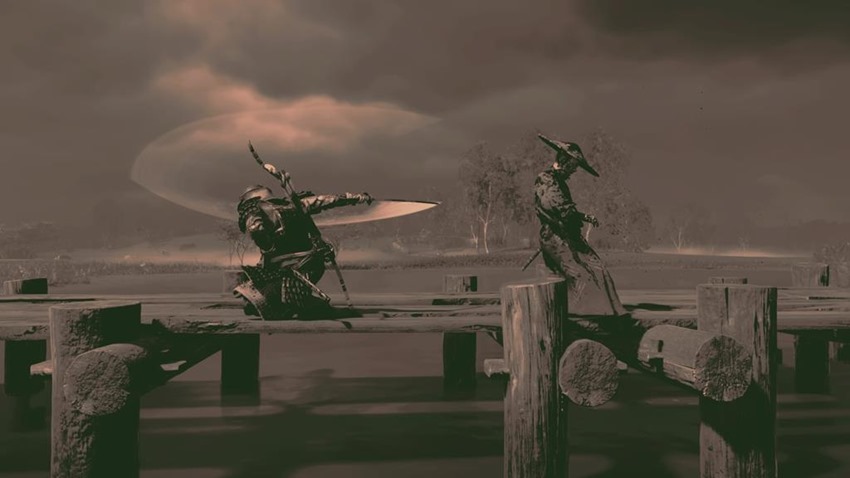
Ghost of Tsushima isn’t just a visual showcase for the PlayStation 4, it’s also a game that features subtletly and nuance, design that seeps through covert means and stays with you long after the credits have rolled. Sucker Punch’s samurai simulator has layers of raw emotion bubbling beneath the surface, turbulent explosions of emotion that manifest throughout the journey and a soundtrack that enhances those themes with its own audio journey that is both subtle and explosive when it needs to be.
You can thank composers Ilan Eshkeri and Shigeru Umebayashi for that, as the duo flexed their musical muscles to deliver a captivating score throughout the epic saga of Jin Sakai. So how did the composers approach this project? By focusing on aspects of the score that played to their strengths. “It was very coincidental, but the funny thing about it is that I had collaborated with Umebayashi more than ten years ago on Hannibal Rising,” Eshkeri explained.
On this particular project, we worked together but we actually worked on different parts of the game. We didn’t collaborate in the traditional sense. I don’t know much about the bits that he did, but his music was specific to certain areas of the game. It’s incredibly beautiful, it’s about exploring the open world whereas the music I was writing was much more character driven in the game.
“I hate to sound cheesy, but music is very much a universal language. Umebayashi’s incredibly knowledgeable about western classical music, but also he’s a punk rocker! From my part, when I spoke to Sucker Punch and PlayStation about it, they had a desire for in all aspects of the game, for great authenticity and great cultural respect,” Eshkeri said of Sucker Punch’s goal to have an emotional score that enhanced the story they wanted to tell.

What I’m not interested in doing is a game or film where it’s just about fighting for the sake of fighting. When I was approached by PlayStation, my immediate prejudice escaped and I was like ‘I’m not going to be interested in doing this’. But I took a meeting, and the guys at Sucker Punch sat me down in the board room. It was part video, part storyboard and part narrated, that described the entire story.
By the of that I was so blown away, it was so far away from what I had expected. There’s lots of fighting in this game of course, but at its core this is a deeply emotional journey. It’s a really amazing character arc, about this young man who to against all the tradition and all the morality of what he was taught. He has to go against all of that in order to save the people that he loves.
In Jin you have this emotional conflict. You play this all the way to the end, and the very last thing he has to do is filled with powerful emotional conflict. It’s in that space, where the interesting, powerful and painful emotions are, and where I was able to write beautiful music. Even when you’re fighting, a large part of that music is emotive.
To achieve a more authentic approach, Eshkeri also detailed how Japan’s history and culture led him to discover a form of music that could trace it roots back to feudal era where Ghost of Tsushima’s saga unfolds. “I really liked that idea and I was really inspired by it, so I set about learning about the harmonies of Japanese music, the scales they used and the instruments,” Eshkeri said.

I met up with this professor of Japanese music here in London who taught me a lot. I really started to learn in quite a bit of detail about Japanese culture and folk music from that period of time. I learnt just enough to know how little I actually knew about it! The instrument players that I worked with, were some great masters. When you were work with great musicians and you write something, they say ‘I can’t do this but if I do this with the instrument I can make that happen’.
One of the great discoveries on my journey was this instrument called the Biwa. The amazing thing about it, is that it’s the instrument that at that time and for hundreds of years afterwards, samurai would learn how to play this instrument and sing songs of their exploits. So the Biwa, in many ways, is the most warlike of instruments.
The tradition of samurai warriors disappeared in Japan later on, and so did the tradition of this music. There were only one player in the last century, one master of it and they taught a few other people. Fortunately for me one of them, Junko Ueda who lives in Spain, she was very open to being involved and advising me. We had a couple of long chats on Skype, we briught her to London and she performed some incredible music for us.
You get just a couple of notes of that in isolation and it’s really evocative. I think that roots you in that world. A lot of Japanese music at that time, was very solo-istic. There wasn’t a tradition of putting a whole lot of players in a room together, there wasn’t much of that.
Above all else, Eshkeri’s goal was to not just remain authentic to the themes of the game, but to also create music that echoed the complexity of the characters who carried Ghost of Tsushima’s tale. “For Lord Shimura, I used this piece of music called the hekei, which the samurai used to play, on the Biwa as the basis for his theme,” Eshkeri said of Jin’s uncle who represented the samurai code.

That is very traditional, very samurai, and very authentic. Because for me that’s what he represents: Samurai and tradition. And then Jin, he had two themes. He had his more heroic theme, which to me is how the people of the island see him. They see him as the ghost and it has a sense of melancholy about it but it is a more straight-forward heroic theme.
And then you’ve got the Way of the Ghost theme and that is something that I wrote very early on, and it became the main theme. That theme, is about the tension, the emotional pain of his journey. People are complicated, good people do bad things and bad people do good things. Because the characters were so well-rounded, so deep in their emotions, I didn’t want to do something like Star Wars where Darth Vader had the bad guy theme.
It needed to be much more nuanced and much more about the emotional state.
We’ll have more on the making of this soundtrack soon, including how the most metal of Mongolian instruments was used to create a menacing sound whenever you encountered the hordes of Khotun Khan.
You can grab the Ghost of Tsushima soundtrack right here, from a platform of your choice.
Last Updated: August 4, 2020





















MechMachine
July 29, 2020 at 14:33
Just don’t look for videos on YouTube with experts breaking down the accuracy of certain aspects of the game. There seem to be one or two inaccuracies.
Mistake Not...
July 29, 2020 at 15:30
I like how restrained the score is. You’d think a game about mongols vs samurai would have over the top action themes, but the music is never overwhelming. All the music is great, but ‘Jin Sakai’ playing as you ride through a pampas field at the start of the game is one of my favourite gaming moments in recent memory.